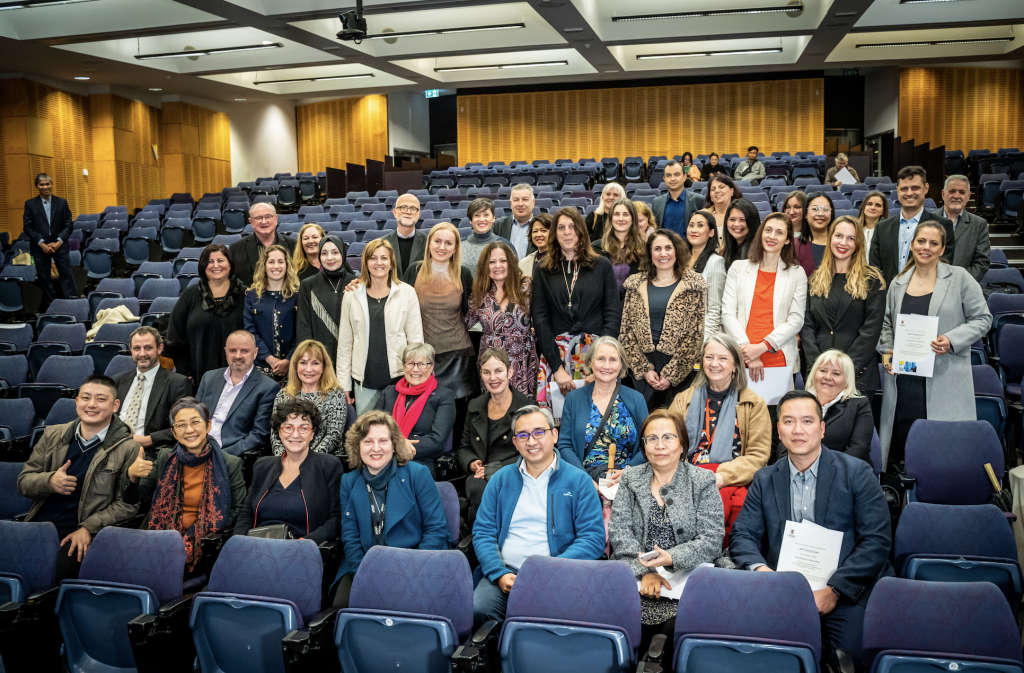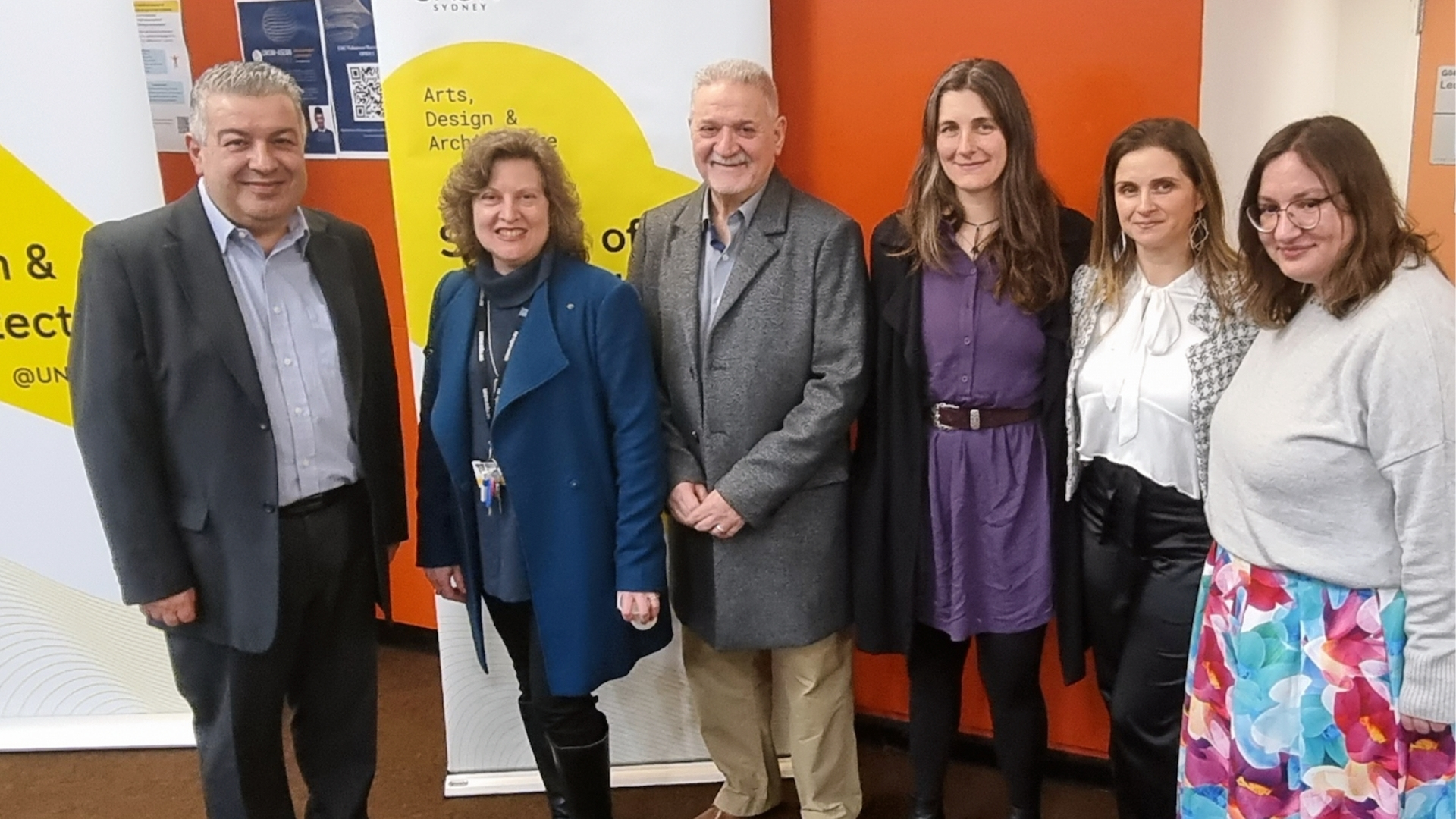More than 40 multilingual students, among them five Greeks, are ready to help diverse communities access information and essential services after completing the NSW government’s Interpreting Scholarship Program.
“The course was very intensive and very good,” Greek-Australian student Olivia Wilson Zarganis told The Greek Herald about the 20-week course facilitated by the University of New South Wales (UNSW).
“I always wanted to go down the interpreter path, but it involves quite a lot of studying, and I work full-time, so it was always too hard. But then I saw this, which worked around a full-time schedule.”
Each of the 42 scholarship graduates will now be able to sit a Certified Provisional Interpreter test allowing them to work as interpreters for Multicultural NSW and fill language shortages.
“Multicultural NSW is Australia’s leading provider of interpreting services, and each of these graduates has a chance to join its ranks and fill shortages in key languages,” said Minister for Multiculturalism, Mark Coure.
The key languages the new interpreters will be covering are Filipino, Greek, Hungarian, Indonesian, Italian, Macedonian, Nepali, Portuguese, Serbian, Thai, Turkish, and Vietnamese.
Mr Coure said with a growing number of people in NSW speaking a language other than English, interpreters are more important than ever.
“The latest census data shows us that more NSW residents are speaking a language other than English at home,” the Minister said.

“This scholarship program is about tapping into the availability of these languages in NSW, where we can create job opportunities for people to use their language skills and in turn help their communities.”
According to the latest census data, NSW has the second largest Greek and Cypriot populations in the country after Victoria, while the Greek language is one of the top ten widely spoken in Australia other than English.
“I didn’t actually realize how much is involved in interpreting. I thought being bilingual would be enough, but it’s definitely not,” said new interpreter Ms Wilson-Zarganis.
“An interpreter allows someone to communicate accurately with a doctor, a lawyer, a judge, other members of the community (to name a few) and allows access to information – and that is a human right.”
But for the Greek-born interpreter and holder of Australian, Greek and British nationalities – who recently moved to Australia after completing her studies abroad, the program was more than professional development.
“It was also quite interesting to meet and connect with people from different nationalities who were doing the course,” she said.
“And we’ve set up a little group now with the Greek cohort. The Greek tutor, Bill Gonopoulos, kept us all in touch. Which is nice because I moved here quite recently, so I don’t belong to a particularly Greek community, which I miss.”
Now Wilson-Zarganis looks forward to taking that next step and start working in the community.
“It sounds like we’re all really needed, actually. They seem to really need interpreters in our languages,” she said.
Through the 2022-23 NSW Budget, the government has committed $8 million per year for two years to boost the NSW Government’s languages services, including an expansion of its Interpreter Scholarship Program.
READ MORE: Mark Coure MP – Opinion: Sydney’s a global city, but we don’t talk like one

